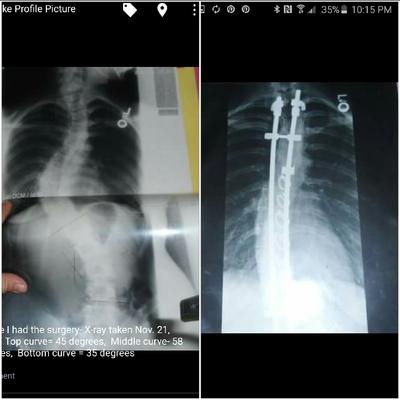10 Indication Of Ovarian Cysts You Must Not Neglect
Content
- What Are The Effects Of Ovarian Cysts?
- Just How Is An Ovarian Cyst Identified?
- Threat Elements For Ovarian Cancer.
- Treatments And Treatments.
- Just How Do Ovarian Cysts Impact Pregnancy?
What Are The Effects Of Ovarian Cysts?
If you're experiencing extreme or otherwise concerning signs and symptoms, see your medical professional. They can diagnose any type of cysts or various other concerns that may be influencing your ovaries, in addition to help create a therapy strategy matched to your needs. In many cases, it may be a sign of ovarian torsion. This can lower the circulation of blood to your ovaries via agonizing turning. PID might create an abscess-- a collection of pus-- Visit this link to create in your reproductive tract.
How Is An Ovarian Cyst Identified?
Should you be able to feel ovaries?
The ovaries are located in the lower abdomen. That means if you have ovarian pain, you'll most likely feel it in your lower abdomen -- below your belly button -- and pelvis. It's important to have any pelvic pain checked out by your regular doctor or obstetrician/gynecologist. Several different conditions can cause it.
During your menstruation, your ovary normally inflates as an egg develops and gets ready for release. Fluid-filled sacs called cysts that develop in the ovaries are an additional feasible factor for these body organs to swell up. Mark cells can block an egg from your ovary from entering or taking a trip down the fallopian tube to your womb.

When should you go to the ER for an ovarian cyst?
If you have any of the following symptoms of a ruptured cyst, head to the ER right away: Pain with vomiting and fever. http://moenustnpz.nation2.com/vicks-vaporub-on-feet-to-quit-a-coughing Severe abdominal pain that comes on suddenly. Weakness, faintness, or dizziness.
Risk Elements For Ovarian Cancer Cells.
Medication or surgical procedure is required to remove a cyst triggered by ectopic maternity-- the cyst worsens as the pregnancy expands in an area that can't suffer it. If you are ovulating generally, there is absolutely nothing you can do to prevent an useful ovarian cyst from developing.
- This creates the follicle to proceed growing into a cyst.
- This excruciating health problem is relatively typical, affecting greater than 10% of females that fall between the ages of 15 and also 44.
- Surgery to eliminate the womb as well as ovaries is known as hysterectomy as well as oophorectomy.
- hair follicle cysts usually have no signs and go away in one to 3 months.
- Endometriosis is a disease that occurs when the uterine lining grows outside the uterus on various other locations of the body where it doesn't belong, such as the ovaries.
Therapies And Also Treatments.
You ought to see your physician as soon as possible if symptoms are extreme or continue to read more take place for greater than a month. Ectopic pregnancyis when a fertilized egg implants in a location beyond the uterus. Usually this occurs https://edwinlejb695.hatenablog.com/entry/2020/08/23/224815 in the fallopian tubes, however on unusual celebrations, it dental implants on an ovary.
If not dealt with properly, PID can return once more. Polycystic ovary syndrome, among the leading root causes of the inability to conceive. Women with PCOS often have lots of tiny cysts on their ovaries. If your cyst needs surgical treatment, your medical professional will certainly either eliminate just the cyst or the entire ovary.
How Do Ovarian Cysts Impact Pregnancy?
Surgery to get rid of the womb and ovaries is known as hysterectomy as Informative post well as oophorectomy. A reciprocal salping- oophorectomy is a procedure in which both fallopian tubes and also ovaries are eliminated.
How long do ovarian cysts take to go away?
Treatment. Functional cysts normally shrink on their own over time, usually in about 1 to 3 months. If you have a functional cyst, your doctor may want to check you again in 1 to 3 months to make sure the cyst has gotten smaller or gone away completely.
In rare instances, you might require surgical treatment to remove a ruptured ovarian cyst, according to Johns Hopkins Institution of Medication. Thankfully, surgical treatment for a ruptured ovarian cyst is just called for if your situation is severe (like take-an-ambulance-to-the-E.R. severe).

